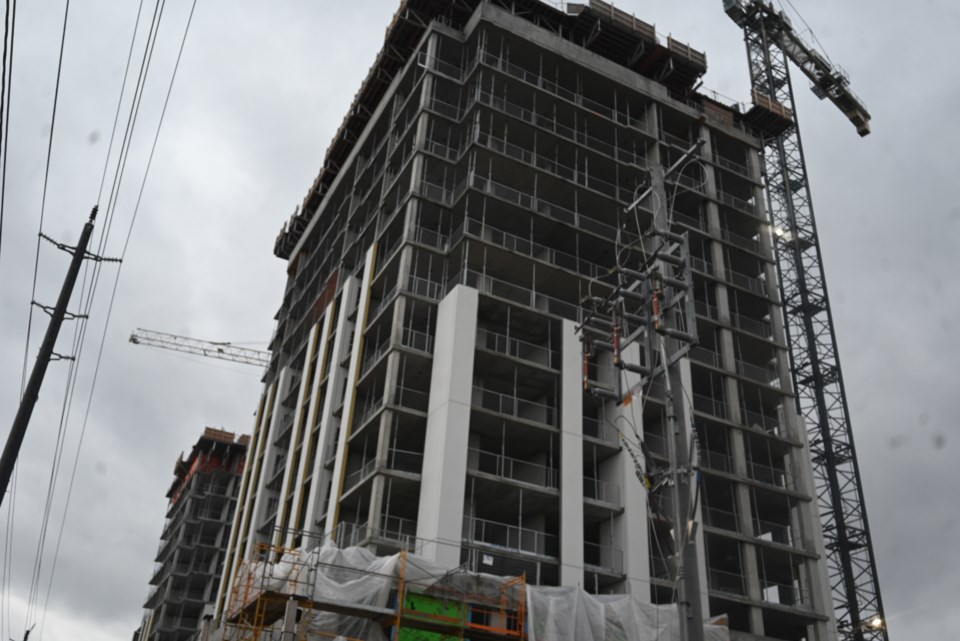Newmarket Mayor John Taylor says new provincial housing legislation is not doing enough and still represents a misguided idea that municipalities are holding up housing from being built.
The province introduced the Protect Ontario By Building Faster and Smarter Act May 12, which proposes many tweaks to planning legislation to speed up home and infrastructure construction. The province also announced more funding for enabling infrastructure, including water infrastructure.
But Taylor said while there are changes that stand to improve the housing crisis, the new legislation does not have “transformational potential.”
The funding, ultimately, is not enough to ease the challenges municipalities are facing, he said, while questioning aspects of the bill indicating housing delays are primarily caused by how municipalities operate.
“I’ve got a lot of concerns,” he said, adding that the idea that housing affordability can be solved through the municipal level is not grounded in reality.
“Can we do better? Always. If we fixed absolutely everything at the municipal level, would the housing affordability crisis disappear? Absolutely not. I’m worried that this constant fixation on municipalities is stopping us from focusing on some of the bigger things that need to be addressed.”
The legislation would standardize development charges — fees imposed by municipalities on new developments to fund infrastructure expansion. The province is also proposing to streamline aspects of the planning process and speed up transportation development.
“The status quo simply isn’t working, and families across Ontario — including mine — deserve to see real change,” Vaughan Mayor Steven Del Duca said in a provincial news release. “I welcome the province’s leadership in cutting red tape, standardizing approvals, and building a more efficient, affordable future for all Ontarians.”
Development charges have been a frequent point of focus for the province, with the government cutting them in its last term to try to increase housing affordability.
However, Taylor and other municipal politicians have said development charges are critical to fund infrastructure that makes housing possible. Municipalities have said the development charge cutbacks will lead to financial shortfalls, which will end up in the laps of existing property taxpayers.
The legislation would also allow builders to defer development charges for any type of build until building permit issuance, and removing development charges from long-term care homes and more.
The province also promised additional infrastructure funding, including $400 million in new funding toward two programs — the Housing-Enabling Water Systems Fund and Municipal Housing Infrastructure Fund — bringing total investment across both funds to nearly $2.3 billion across four years.
Taylor said that while new funding is welcome, it is not sufficient. He said York Region alone faces about a $28-million annual shortfall in lost development charges from recent provincial moves.
The massive York Region sewage expansion project, which will provide needed capacity for additional housing in Newmarket, Aurora and East Gwillimbury, will cost in the billions, he added. While the first phase has a preliminary estimated cost of $515 million, future phases will still require significant funding.
Taylor said all levels of government need to come together to discuss solutions, but he is optimistic that it can happen.
Conversations need to “get past just a municipal focus and onto some more substantive ways of advancing and accelerating housing. Both market rental housing and subsidized housing … I think both of those need a great deal more focus and they’re not getting it.”
Aurora Mayor Tom Mrakas has also expressed concern on the legislative moves on development charges and the need for sustained funding for municipalities if development charges are reduced or limited.




